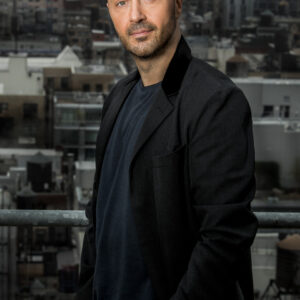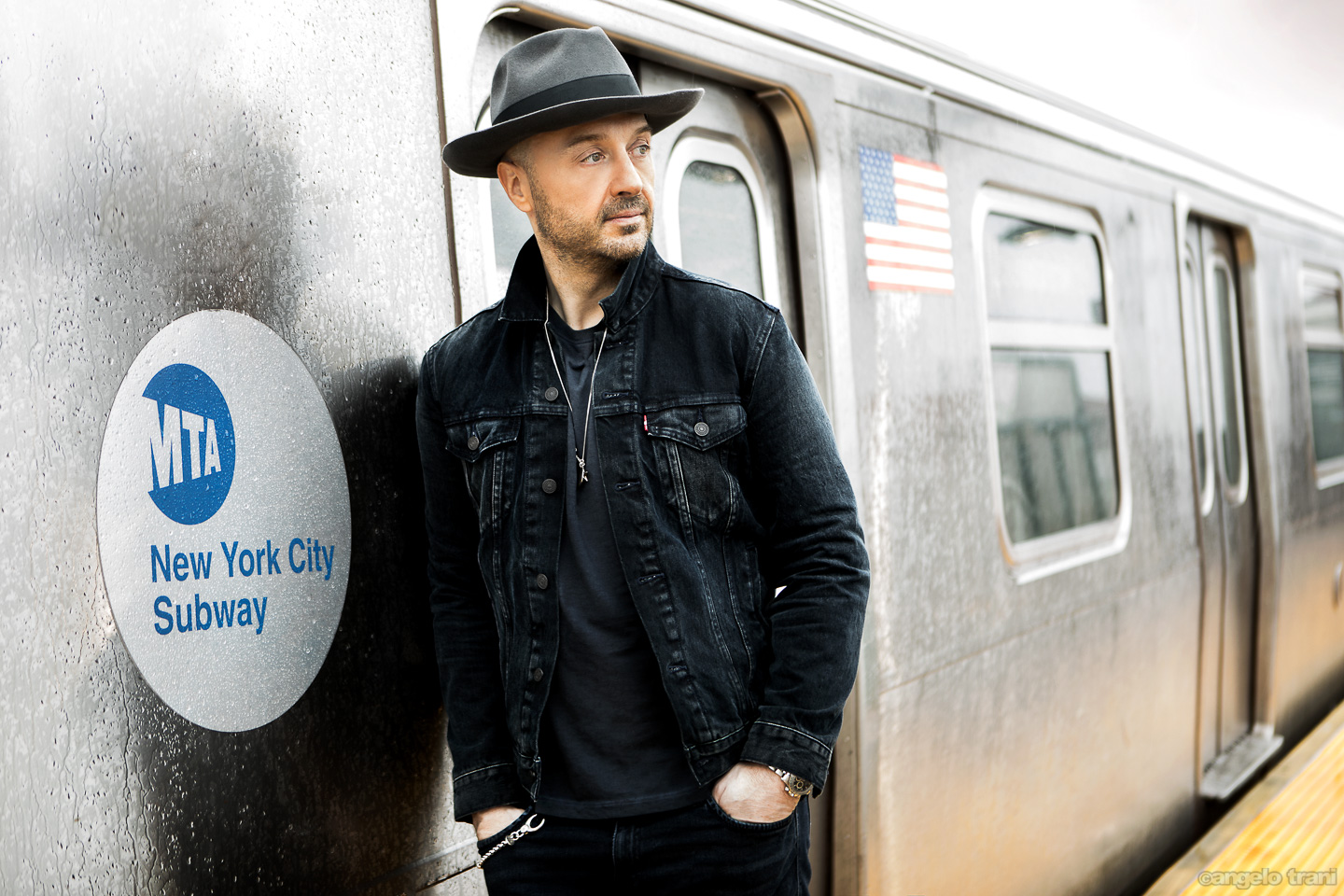Joe is currently in NYC, and from his Instagram stories showing him on the subway or skateboarding on the city streets (pre-covid) he’s showing us how happy he is to be here. Best known to be a television personality, restaurant owner and business partner of his mother Lidia Bastianich, he never forgets to honor his passion for music.” One City Man” is his first “instant song” and a true declaration of love to the City.
Bruce Springsteen wrote “The Rising” after 9/11. You wrote “One City Man” after last year’s lock down. Your song conveys New York’s spirit of rebirth. What other sentiments do you mean to pass on?
“I think the song goes in three phases. The initial part is a little bit of anger, you know, of people leaving the city and people saying everything is falling apart. The bridge is a little bit romantic, while the end is the rising, the optimism, the city that’s gonna be back. Those were the emotions I felt. I was in the frontline in the darkest moments, out there cleaning up restaurants, throwing out food, trying to make people work as many were leaving. The journalists sitting at their computers in their suburban houses writing about what’s happening in the city. It just all made me feel very angry. Through that period, I was writing in the subways, going to Central Park, or walking on the High Line alone. There was the emotional part and then the confidence in New York City. Never bet against New York City. New York City will be back and that’s the song.”

Tell us about your New York
“I grew up in the nostalgic New York of the 70’s and 80’s, which was a real golden era. I went to school in the south Bronx and then Queens. We used to go to the CBGB’s to see The Ramones, I saw the first hip hop break-dancers in the Bronx in the 70’s. I saw the birth of disco with Studio 54 as a teenager. Then NY transformed itself and cleaned up and it lost a lot of that. It became another city, more international. I feel like in today’s age, it may be a little bit sterile, because it’s so expensive to live here, so the real artists and the real New Yorkers sometimes are forced out, which is very bad. But there’s no greater meritocracy in the world, there’s no greater concentration of talent, in whatever, in the arts, in business, in music. It’s a place where you have to perform to stay alive, you can’t fake it, and I love every aspect of that.”
Has the fact that you belong in two countries, continents actually, been a creative factor for you?
“There’s definitely a culture exchange in my life. In the last fifteen years, I’ve divided it between New York, Los Angeles and Italy. I have a real part of me that’s Italian: I make wine and I have a career there. I feel part of the Italian life and I’m grateful to have this popularity there where I can really reach out to the people. But I’m not Italian, I’m an American, and I think that maybe what I bring to the Italians and what they like is this very American attitude of optimism. That element of being punk rock and to be incorrect at times, to maybe tell the truth that people don’t want to hear, which is also a very American thing. I think that appeals to younger people. I’ll always be a New Yorker and that will never go away, but there’s a part of the Italian culture that I find very beautiful. It’s always the same: when I’m in New York I miss Italy, when I’m in Italy I miss New York. I’m lucky enough that I can just fly back and forth.”

Restaurants, TV, Wall Street, musician. You’ve had all these careers. Which one represents you the best?
“Music. I think it’s the part that connects most with my soul, my passion. I feel that I’m more a writer than a musician since I write about music or prose or TV, and even in my professional life in restaurants. You create an image and whatever, but when you’re writing music you really have to be introspective and you have to let your real emotions come out. The music best represents who I am as a person more than anything else.”
Is there going be a record soon?
“I’m going to release a couple of singles and there’s a bunch of stuff that I wrote during the lockdown, very much about that experience. I’ll put it all in this creative music workspace. It’s definitely in the works.”

I know your maternal grandmother bought you your very first guitar. What were your main musical influences? What was your first record?
“I think you can hear my influence in my music. It’s very much ‘americana’, blues, country-folk, all that kind of music from the American tradition. And that’s what I like to share with Italy, because there it’s a different music world from mine, it’s authentic, and even if it’s not very popular music and it’ll never get played on the radio, it represents something very real, very American, something that belongs to me.”
Is there any Italian music that you like?
“Pretty much all the nostalgic stuff. I grew up with my mother listening to the 50’s, 60’s, Sanremo. I love De André and the singer songwriters from the 70’s and early 80’s. I got the opportunity to meet a lot of artists like Jovanotti or Vasco. Vasco is a good example. I never really understood him until I got to know him as a person and then I understood the power of his message and what he meant for Italy. It’s tough to understand something like Vasco Rossi, unless you really immerse yourself in the Italian popular culture.”











